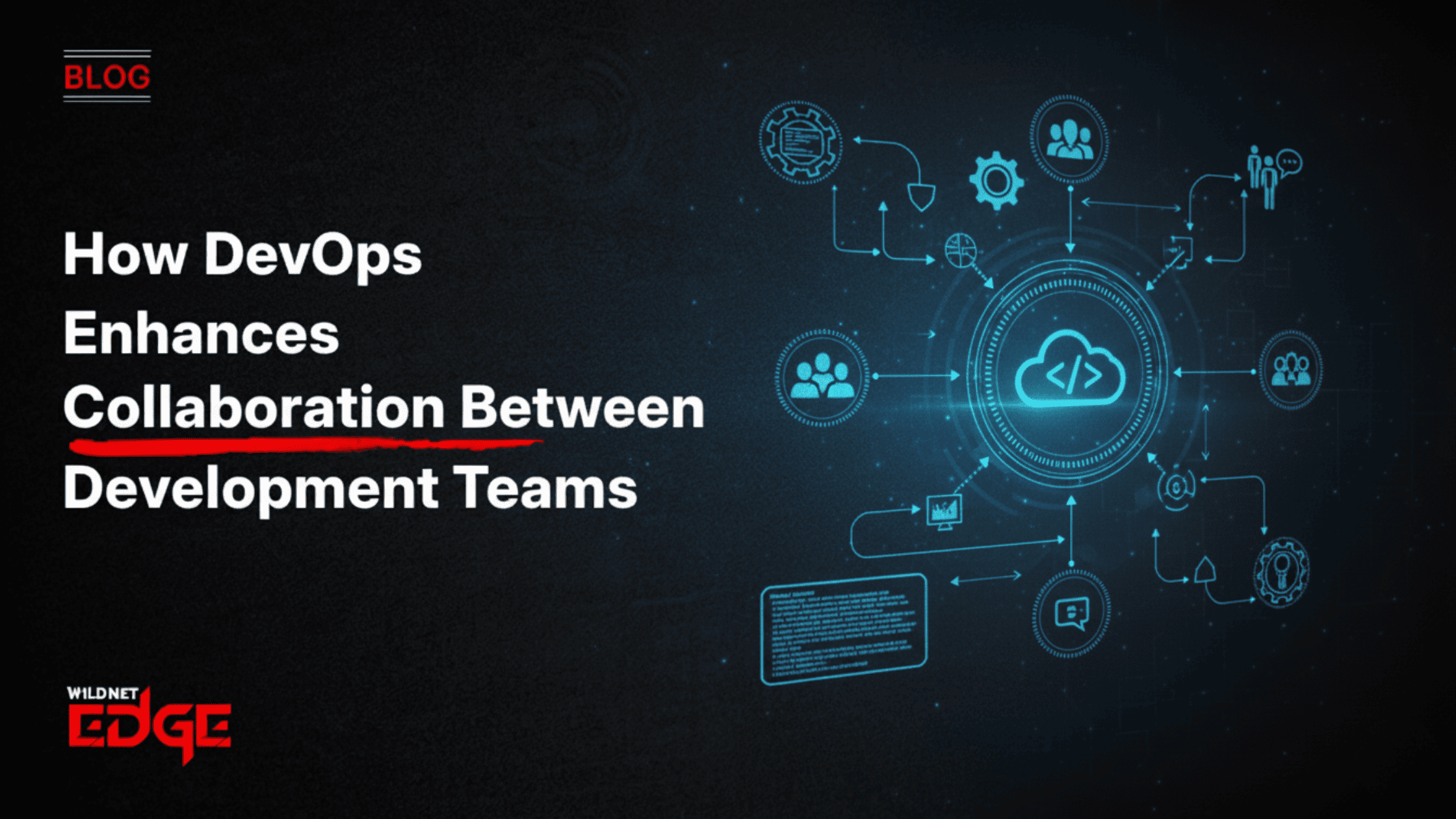TL;DR
This article examines how DevOps culture fundamentally enhances collaboration between traditionally siloed development and operations teams. It explains that DevOps team collaboration is achieved through shared goals, automated DevOps workflows, and common team productivity tools. Key benefits detailed include faster feedback loops, increased trust, reduced friction during handoffs, and a collective sense of ownership over the entire software lifecycle. By breaking down barriers and fostering communication, DevOps leads to quicker problem resolution, higher quality software, and accelerated delivery speed, ultimately providing a significant competitive advantage for businesses embracing this collaborative model.
For decades, the relationship between software development (Dev) and IT operations (Ops) teams was often characterized by rift. Developers wanted to push new features quickly, while operations prioritized stability, leading to bottlenecks and blame games. DevOps emerged as a cultural and technical movement to break down these silos. At its heart, DevOps team collaboration is about creating a unified, synergistic environment where these teams work together towards shared goals, dramatically improving the speed and quality of software delivery.
The Problem with Silos
Dev and Ops operate independently in a traditional setup with different objectives and often different toolsets. Developers “throw code over the wall” to Ops for deployment and maintenance. When issues arise in production, it’s usually unclear who is responsible, leading to finger-pointing and delays. This lack of communication and shared understanding creates significant inefficiencies:
- Slow Handoffs: Manual processes for code deployment and infrastructure provisioning create bottlenecks.
- Misaligned Goals: Dev optimizes for speed, Ops for stability, leading to conflict.
- Poor Feedback Loops: Operations insights about production performance rarely return to developers quickly.
- Lack of Shared Ownership: Problems in production are often seen as “Ops’ problem,” not a shared responsibility.
How DevOps Fosters Collaboration
DevOps introduces principles, practices, and tools specifically designed to bridge this gap and enhance DevOps team collaboration.
Shared Goals and Metrics
DevOps aligns Dev and Ops around common business objectives, such as faster time-to-market and improved system reliability. Both teams are measured on shared metrics (like deployment frequency, lead time for changes, change failure rate, and mean time to recovery—MTTR), ensuring everyone is pulling in the same direction.
Automated DevOps Workflows (CI/CD)
Automation is a cornerstone of DevOps. Continuous Integration and Continuous Delivery pipelines automate the build, test, and deployment process. This automated workflow serves as a common ground, reducing manual handoffs and the potential for human error. It forces collaboration, as Dev and Ops must work together to define and maintain these pipelines. Effective DevOps Automation is key to this success.
Shared Tools and Visibility
DevOps promotes the use of common team productivity tools across the entire lifecycle. This includes shared version control systems (like Git), project management tools (like Jira), monitoring and logging platforms (like Datadog or Grafana), and communication channels (like Slack). This shared toolchain provides everyone with visibility into the status of code, infrastructure, and production performance, breaking down information silos. Access to robust Cloud Infrastructure Services often facilitates using these integrated toolsets.
Cross-Functional Teams and Shared Responsibility
Mature DevOps organizations often move towards cross-functional teams (“squads” or “pods”) that include members with both development and operations skills. These teams have end-to-end ownership of a specific service or feature, from initial code to production support. This fosters a strong sense of shared responsibility if it breaks in production, it’s the team’s problem to fix, promoting better collaboration and higher code quality upfront.
The Benefits of Enhanced Collaboration
Enhancing co-working between DevOps teams is not simply a “feel-good” gain; it’s a source of concrete business profits.
- Faster Time-to-Market: Lower resistance and the adoption of automated processes result in significantly faster delivery of features to end users.
- Improved Quality and Reliability: Mutual ownership and speedier feedback loops detect fewer bugs and resolve production problems quickly.
- Increased Efficiency: Implementing automation and reducing duplicate work allows the engineering team to spend their time on innovation.
- Better Innovation: Smooth communication among the teams promotes the free flow of ideas, which in turn generates more creative solutions.
DevOps Collaboration in Action: Case Studies
Case Study 1: A Financial Services Firm Accelerating Releases
- The Challenge: A bank’s traditional, siloed structure meant releasing updates to its online banking platform took months and involved numerous manual handoffs, often resulting in deployment errors.
- Our Solution: We provided comprehensive DevOps Services to help them adopt an agile and collaborative model. We implemented a unified CI/CD pipeline, introduced shared monitoring dashboards, and facilitated cross-functional team training.
- The Result: Their release cycle was shortened from quarterly to bi-weekly. Deployment errors decreased by over 70%, and the improved communication between Dev and Ops led to faster identification and resolution of production incidents.
Case Study 2: A SaaS Provider Improving Stability
- The Challenge: A rapidly growing SaaS Development Services company was experiencing frequent production outages. Their Dev team focused solely on new features, while the Ops team struggled to maintain stability with limited visibility into the application code.
- Our Solution: We helped foster a culture of shared responsibility by integrating developers into the on-call rotation, providing Ops with better application monitoring tools, and establishing blameless post-mortems after incidents to encourage learning.
- The Result: Production stability improved dramatically, with Mean Time to Recovery (MTTR) decreasing by 60%. Developers started writing more resilient code because they shared ownership of production health, demonstrating effective DevOps team collaboration.
Our Technology Stack for Collaborative DevOps
We leverage industry-standard tools that facilitate communication and automation.
- Version Control: Git (GitHub, GitLab, Bitbucket)
- Project Management: Jira, Azure Boards
- CI/CD: Jenkins, GitLab CI, Azure DevOps, CircleCI, Argo CD
- Communication: Slack, Microsoft Teams
- Monitoring & Logging: Datadog, Grafana, Prometheus, ELK Stack
- Infrastructure as Code: Terraform, Ansible
Conclusion
DevOps team collaboration is the human foundation that turns the technological promise of DevOps into reality. By fostering shared goals, implementing automated workflows, and using unified productivity tools, organizations can break down traditional silos that hinder progress. This seamless collaboration creates a culture of transparency and accountability, where teams work together toward continuous improvement. The result is faster delivery, higher-quality releases, and a more resilient, innovative organization ready to adapt and grow.
Ready to build a culture of collaboration that accelerates your business? At Wildnet Edge, our AI-first approach enhances our DevOps practice. We build intelligent pipelines and provide data-driven insights to optimize your workflows further, ensuring your Software Development Solutions are delivered with maximum speed and efficiency.
FAQs
The adoption of shared code repositories (Git), integrated CI/CD pipelines, and common monitoring dashboards among developers created shared visibility and context. This eliminates barriers and naturally encourages communication to find solutions within the shared environment when people are using the same workflow and looking at the same information.
Typically, the most significant obstacle is changing the mindset from blaming (“Ops broke the build!”) to a culture of shared responsibility and learning without blame. It is essential to encourage the teams to concentrate on improving the process that allowed the error to happen instead of directing the blame towards an individual, which is a crucial step but demands a firm commitment from the leadership.
Yes, collaboration can be significantly improved even if the teams are not merged structurally. It can be considerably enhanced by implementing shared tools, automating handoffs through CI/CD, establishing regular cross-team meetings (like joint sprint reviews), and defining clear Service Level Objectives for which both teams are accountable.
Automation removes manual handoffs, which are frequent points of miscommunication, delay, and error. When building, testing, and deploying are automated and consistent, they become a predictable, reliable workflow that both teams trust, reducing the need for constant back-and-forth communication for routine tasks.
While direct collaboration is hard to measure, proxy metrics that indicate improved cooperation can be tracked. These include reduced Mean Time to Recovery (MTTR) for production incidents, lower Change Failure Rate, increased Deployment Frequency, and positive feedback in employee surveys about cross-team communication.
No, a mature DevOps culture extends collaboration further. It involves bringing Security (“DevSecOps”), Quality Assurance (QA), and even business stakeholders into the development lifecycle earlier and more frequently to ensure alignment and faster feedback loops across the entire value stream.
Implementing shared monitoring and alerting tools is often a significant first step. Giving developers the same visibility into production performance that the Ops team has fosters empathy and encourages developers to build more observable and resilient code from the start.

Nitin Agarwal is a veteran in custom software development. He is fascinated by how software can turn ideas into real-world solutions. With extensive experience designing scalable and efficient systems, he focuses on creating software that delivers tangible results. Nitin enjoys exploring emerging technologies, taking on challenging projects, and mentoring teams to bring ideas to life. He believes that good software is not just about code; it’s about understanding problems and creating value for users. For him, great software combines thoughtful design, clever engineering, and a clear understanding of the problems it’s meant to solve.
 sales@wildnetedge.com
sales@wildnetedge.com +1 (212) 901 8616
+1 (212) 901 8616 +1 (437) 225-7733
+1 (437) 225-7733















 ChatGPT Development & Enablement
ChatGPT Development & Enablement Hire AI & ChatGPT Experts
Hire AI & ChatGPT Experts ChatGPT Apps by Industry
ChatGPT Apps by Industry ChatGPT Blog
ChatGPT Blog ChatGPT Case study
ChatGPT Case study AI Development Services
AI Development Services Industry AI Solutions
Industry AI Solutions AI Consulting & Research
AI Consulting & Research Automation & Intelligence
Automation & Intelligence















